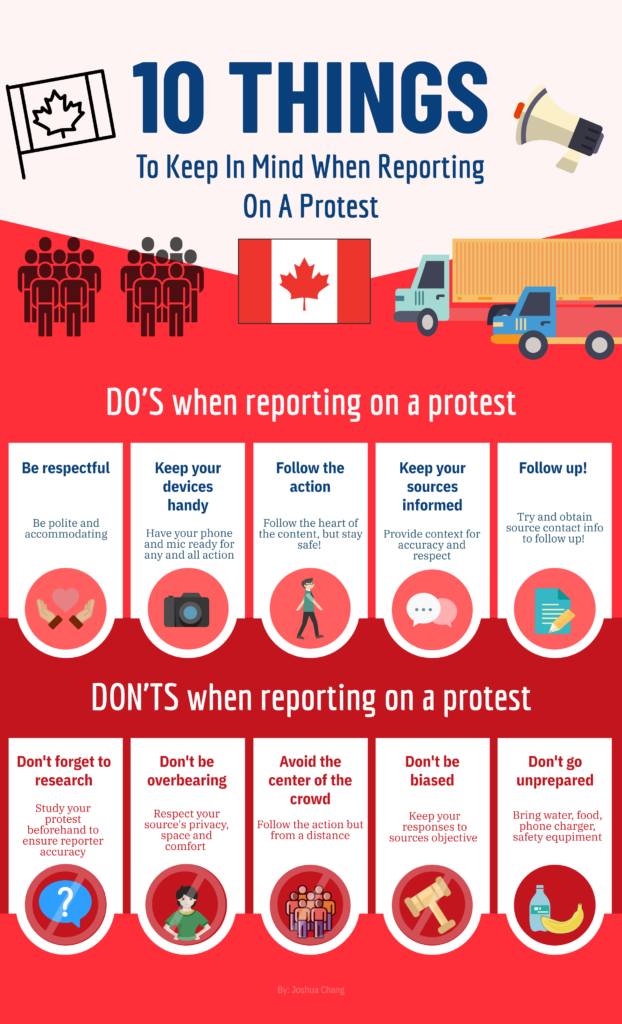By Joshua Chang
Stumbling through the seemingly endless waves of the crowd, University of Toronto performance arts student Chris Vishy struggled to keep his balance, a cloud of vapour puffing from his nose with every breath into the freezing air. He was only one of the thousands who had come to Queen’s Park in Toronto on Saturday, Feb. 5, 2022, to renounce the COVID-19 mandates that the protestors felt to be harsh and restrictive.
Tension had continued to rise in the Greater Toronto Area until the day of the protest. The gathering was one of many across Canada in support of “The Freedom Convoy,” a country-wide campaign denouncing vaccination mandates for Canadian truckers. That day, signs and flags rose high above the sea of shoulders with messages varying from the demand to reclaim their rights to the denunciation of Canadian government officials. The one message they all had in common? Freedom.
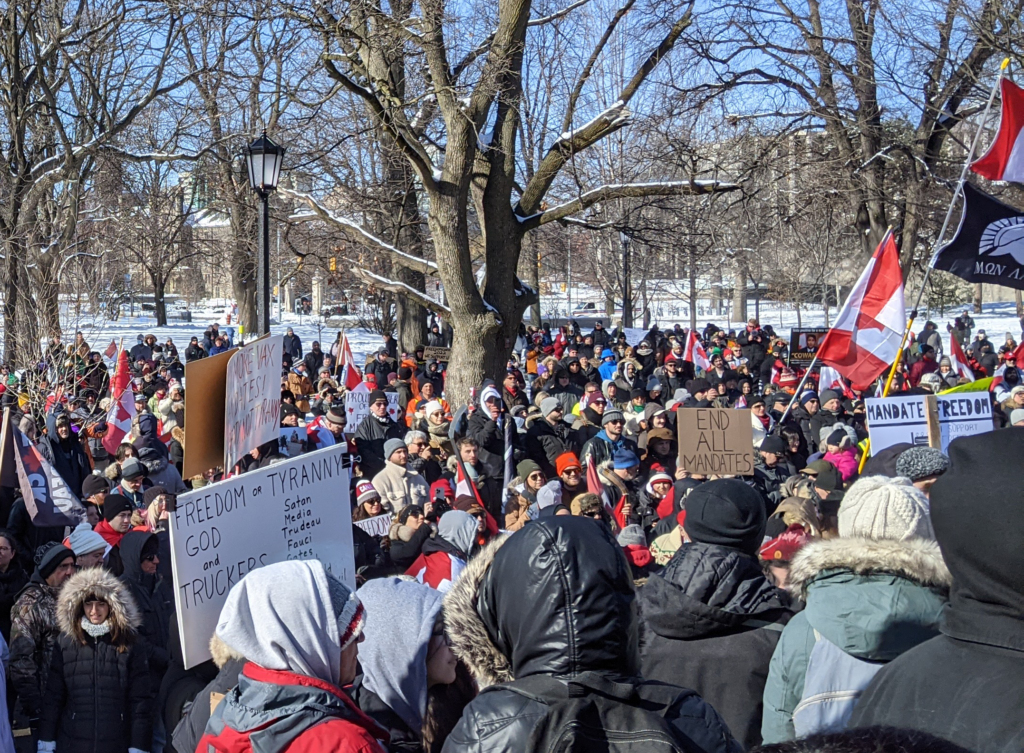
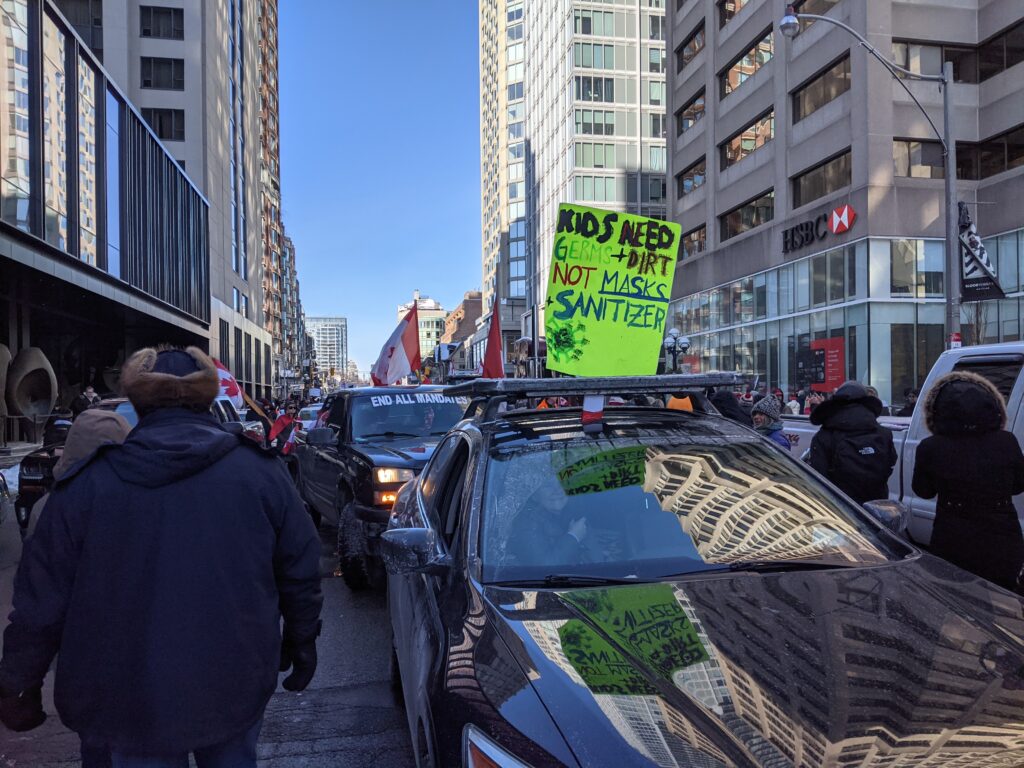
It has now been more than two months since the first wave of the Freedom Convoy protests. During that time, several mandates in Ontario were lifted. On March 1, 2022, proof of vaccination was terminated, excluding travel outside of Canada. A few weeks later, on March 21, the mask mandate was partially lifted. Citizens across the country, taking in this sudden news, had to rapidly adjust to the changes. For some, it was a step in the right direction. For others? It’s still not enough.
Restrictions lifting meant Vishy could start preparing for the re-opening of doors that had seemed to have slammed all around him when COVID-19 shut down Canada in March 2020. Group rehearsals, in-person interactions and live performances had all come to a halt as vaccination and mask policies prolonged his wait to pursue his passion for theatre. The toll it took on his studies was fierce enough for him to want to do something about it.
“People are incredibly stressed about this. Students are being driven to the brink of suicide,” Vishy had said at the convoy, his cheeks brightening in the cold. “Performers aren’t allowed to perform and the arts are suffering because of it.”
He wasn’t the only one who was sick and tired of it at the time. Less than a hundred feet away from Vishy at the protest stood Rebecca Langford, a smiling young woman with a bag of granola bars and juice boxes cradled in one arm. With her free hand, standing behind a table filled with granola and juice, she handed as many snacks as she could to her fellow protestors as they passed by. “I see how COVID and the restrictions have impacted me, my family, my friends and people I don’t even know. It really does hurt me to see that we’re more divided than we’ve ever been,” Langford said with a shake of her head.
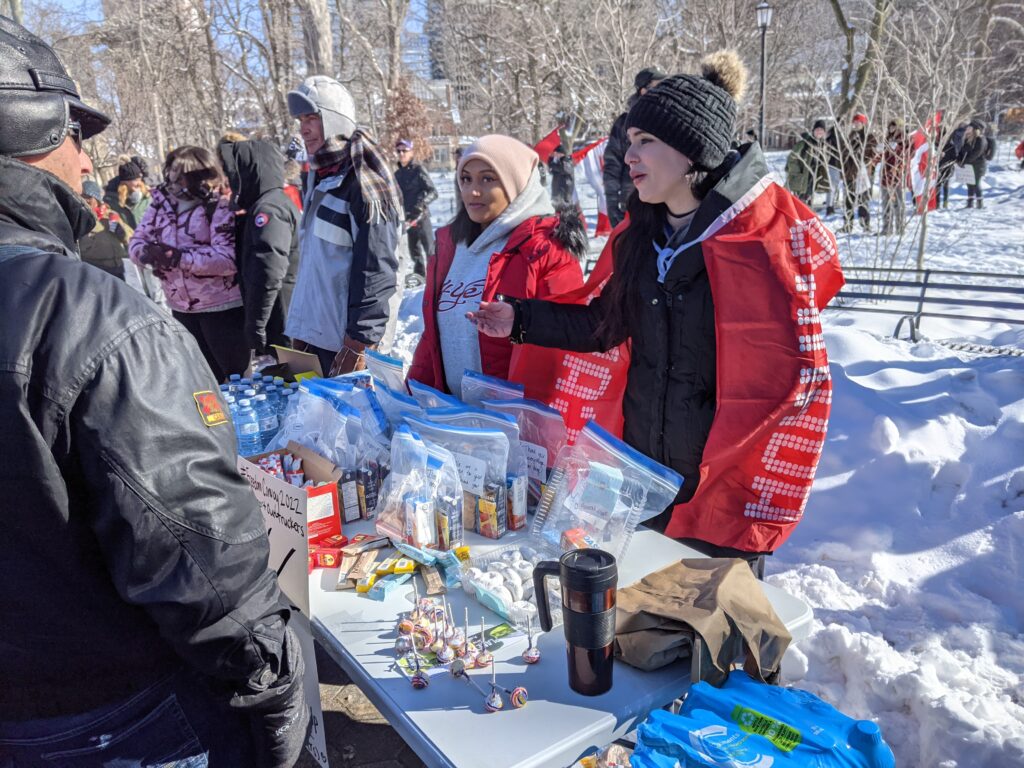
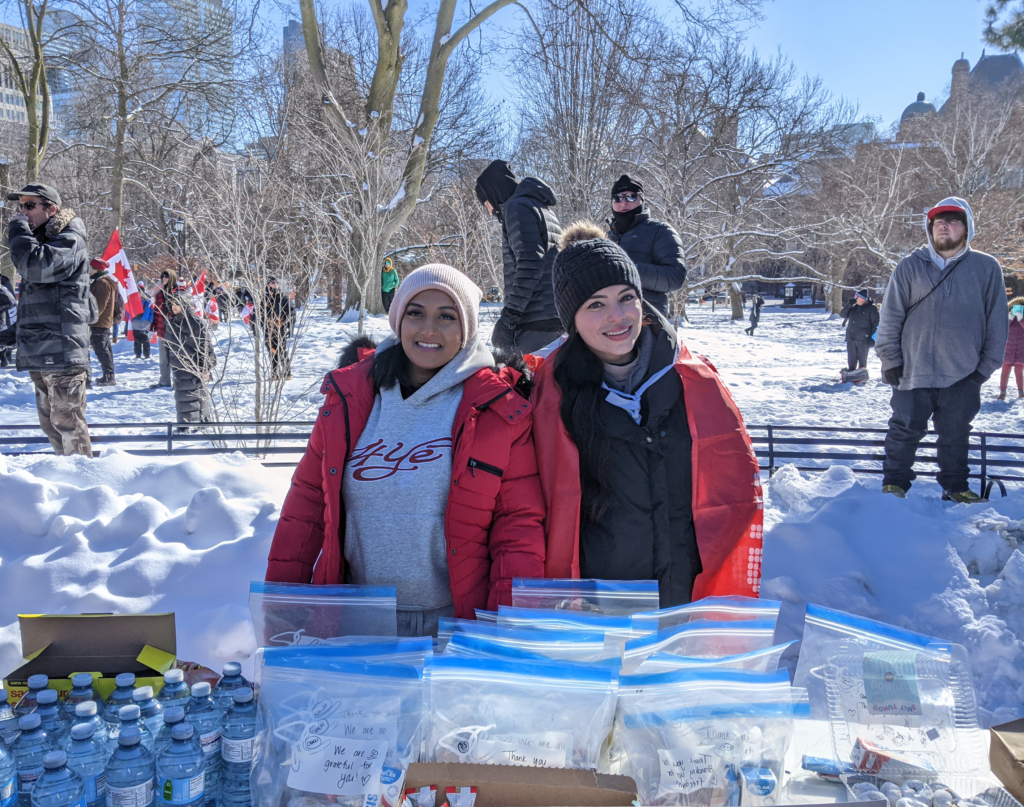
Langford, who has fought against COVID-19 mandates since the pandemic first began, had followed the trucker convoy all the way from Ottawa. “I was in Ottawa for three days, and it was absolutely phenomenal. I literally didn’t want to leave. We were all singing, dancing and eating with one another, and everyone was so peaceful and so nice. It felt so heartwarming to be united again.”
Langford continued, sharing her thoughts and feelings towards the vaccination mandates, describing them as violations of human rights and freedoms.
“As soon as the government starts listening to the people in its country, hopefully we can get through this quicker. But the more that they fight back, the louder we’re going to get.”
Rebecca Langford
It was clear that a lot of people were fed up and ready to take a stand against the mandates. The crowds chanted, “Freedom!” like an anthem of their rage. Once the Ontario government announced the lifting of vaccine and mask mandates, Canadians had mixed reactions. Did the protests pay off? Did the government stop “fighting back”, in hopes of getting rid of the protests? To Vishy, it seemed that way.
Shocked by the sudden change in policies, the performance arts student shared his thoughts in an email interview confirming that many of his classes have returned to in-person learning with quantity restrictions. “I definitely wasn’t expecting it to happen so fast. I’m happy that things are slowly going back in-person and that soon we won’t even have to wear masks.” Vishy wrote. “There’s still a long way to go but I hope the changes keep coming until we can exist normally again.”
Yaser Iftikhar, a fourth-year business management student at Ryerson University, still isn’t satisfied. Every day that passed, to him, felt like a month. Iftikhar, who is an immigrant from Karachi, Pakistan, moved to Canada with his parents at 10-years-old. His older siblings, however, sister Khafia and brother Ijaz, stayed behind in his home country. FaceTime calls and phone conversations had quickly become old, as Iftikhar was used to visiting his siblings at least twice a year for a few weeks at a time. But as life with masks and vaccine mandates continued, it felt to him like they were drifting farther and farther apart.
“It’s far from over,” said Iftikhar in a phone interview. “Just because masks are gone doesn’t mean that things are all good because no one can travel without a vaccine, and it’s crazy to think some people think this is okay.”
“Waiting for all of this to end isn’t fair,” he continued. “I don’t want to have to make my medical history everyone’s business just to see my family. It isn’t fair, and it isn’t right.”

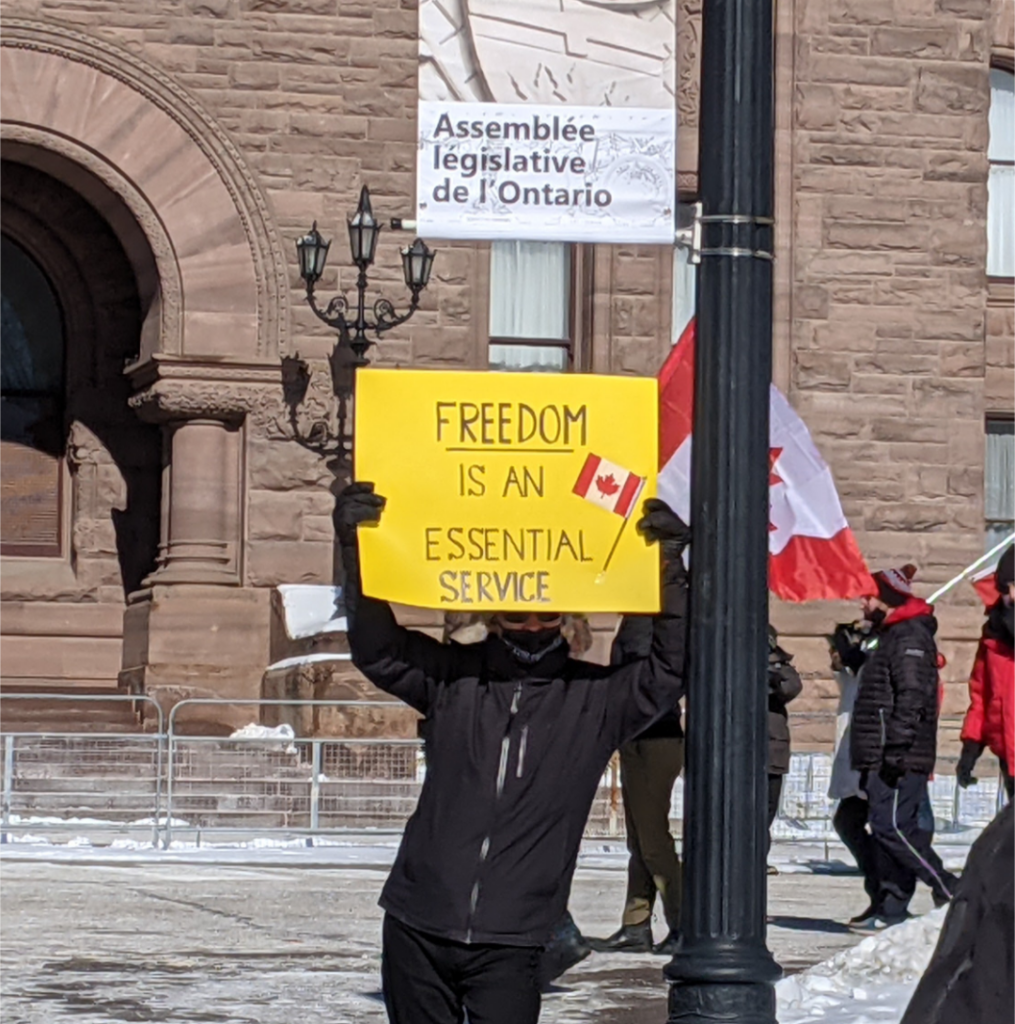
Dr. Amy Song, a physician in Maple, Ont., opened up about her experience caring for patients with COVID-19 throughout the pandemic. She spent a lot of time encouraging her patients, reminding them to stay home and socially distance. Song, who had seen countless stories surrounding the recent protests, was not impressed with the lack of selflessness she saw among the protests.
“We’ve had these mandates for a long time. People are clearly becoming restless. That doesn’t change the fact that COVID-19 still exists and that these mandates are helping us prevent the numbers from rising,” she said. “If people can’t understand that, then we’ll never be rid of it.”
